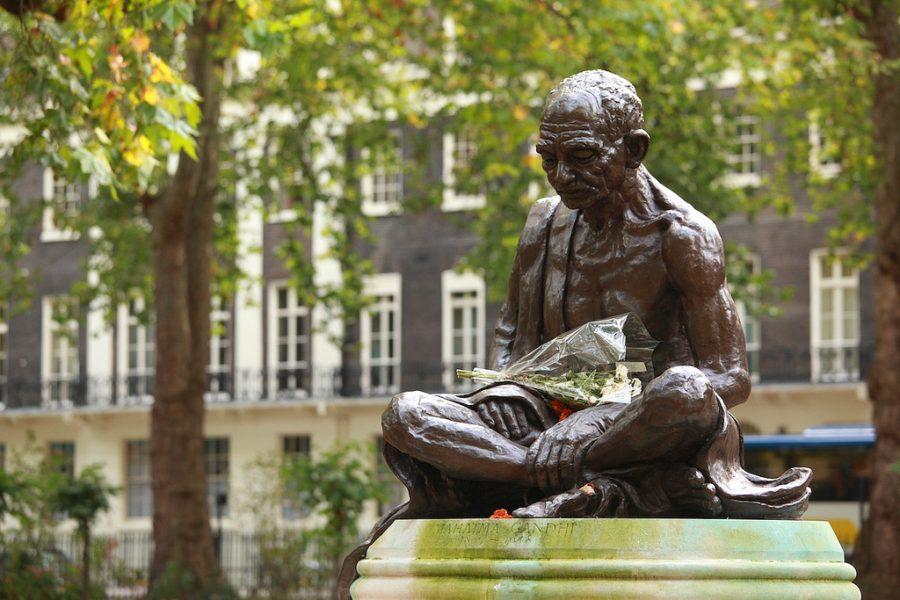On Thursday, Feb. 2 Loyola hosted Arun Gandhi for a lecture as a part of the Bunting Peace and Justice Speaker Series. The audience filled the entire room and extended into the hallway. Arun was not affected by the crowd due to his public speaking experience: According to his website, “Arun has now spoken at Universities and Colleges in all 50 states of the USA.”
Arun Gandi is the fifth grandson of Mohandas K. “Mahatma” Gandhi, who famously lead the Indian independence movement with a strict adherence to nonviolence. Arun lived with his grandfather between 1946 and 1948, and he has dedicated his life to spreading his grandfather’s teachings.
Arun was born and raised in South Africa, and he described it as segregated, hateful, and prejudiced during that time. He explained how he was beaten by “blacks for being too white and by whites for being too black.” Eventually, his rage filled him to the point where he went to the gym and started building muscle to defend himself. This story lead to Arun’s first lesson from his grandfather about anger.
Gandhi taught Arun that we abuse and refuse to understand anger which causes violence. He said anger is like electricity: it is useful when used intelligently, but destructive when misused. Arun told the audience that anger is common in every person, but he warned them “not to act on anger by doing something rash.”
“Get a journal and find a solution to your problems. Then write with the intention of finding a solution,” said Arun.
He further stressed the importance of channeling the energy of one’s anger into constructive action. If anger goes unchecked, a common response is to act out violently. Arun explained that violence can come in two forms, physical and passive. Physical violence consists of directly harming one’s community or environment, while passive violence is more of a second-hand act of violence.
To explain passive violence, Arun described a time when he brought a travel group to a luxury hotel in India, with a perfect view of the slums next door through the window. The travelers immediately came to Arun and said they could not stay in the hotel because they felt too guilty. To stay in a luxury room while others are living in extreme poverty is an act of passive violence. You are not directly harming others, but you are reaping the benefits of a corrupt system while others suffer.
However, passive violence can also exist against nature. Arun gave the example of a pencil to demonstrate this idea. He said that his grandfather lent him a pencil to use for school, and Arun threw the pencil away when it dwindled to an end. Mahatma scolded Arun for wasting the Earth’s resources and said that in the simple making of a pencil, we are using the world’s natural resources. If we choose to waste the Earth’s resources, we are committing a passive act of violence against nature.
“Passive violence fuels physical violence,” Arun said.
Humans take part in passive acts of violence every day when we over-consume, pollute, and waste our natural resources. These violent acts against nature eventually lead to human suffering in some part of the globe, “which is violence against humanity,” Arun said.
To end violence, Arun proposed that we must make our existence meaningful. He said that we are all interconnected to fulfill a purpose here on Earth, “however small it may be.” Arun asked the audience, why not make society a little better than it was when we entered it?
He ended the lecture by pointing out that as long as people live in misery, there will never be peace. Arun proposed that if we put an end to self-interest and greed, perhaps we will begin to care for one another and achieve a deeper level of peace.
“A single person can make a big difference with some motivation,” Arun said, promoting a final message of nonviolence as his grandfather dedicated his life to doing.
Photo courtesy of UCL Institute of Education via Flickr

















































































































